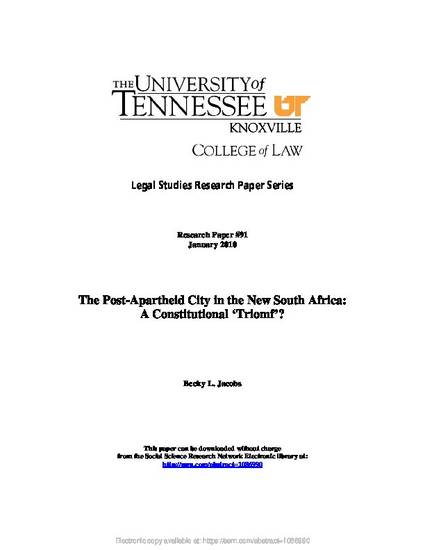
Article
The Post-Apartheid City in the New South Africa: A Constitutional 'Triomf'?
Pace International Law Review
(2006)
Abstract
In her mercilessly satiric novel Triomf, Marlene van Niekerk recounts the oppressive daily lives of an impoverished family of White Afrikaners on the eve of South Africa's first democratic elections. Imbued with Afrikaner history and politics, the novel reveals the ironically tragic effect of Apartheid on the White underclass and ravages the myth of Afrikaner supremacy.
Triomf's intricate allegorical narrative brutally exposes the failure of the ideology of White superiority. It also may serve as a cautionary tale for the post-Apartheid South Africa, a reminder of the dangers inherent in creating, continually reinforcing, and sustaining societal myths and expectations of redress and redemption. Based upon her research with Jenny Whittal, Professor Jacobs explores van Niekerk's fictional imagery and its metonymy in the context of the Apartheid Era South Africa and of the new South Africa's Constitutional promise of land reform in the post-Apartheid city.
Keywords
- Law & literature,
- South Africa,
- Land reform
Disciplines
Publication Date
Fall 2006
Citation Information
Becky Jacobs. "The Post-Apartheid City in the New South Africa: A Constitutional 'Triomf'?" Pace International Law Review (2006) Available at: http://works.bepress.com/becky-jacobs/2/
